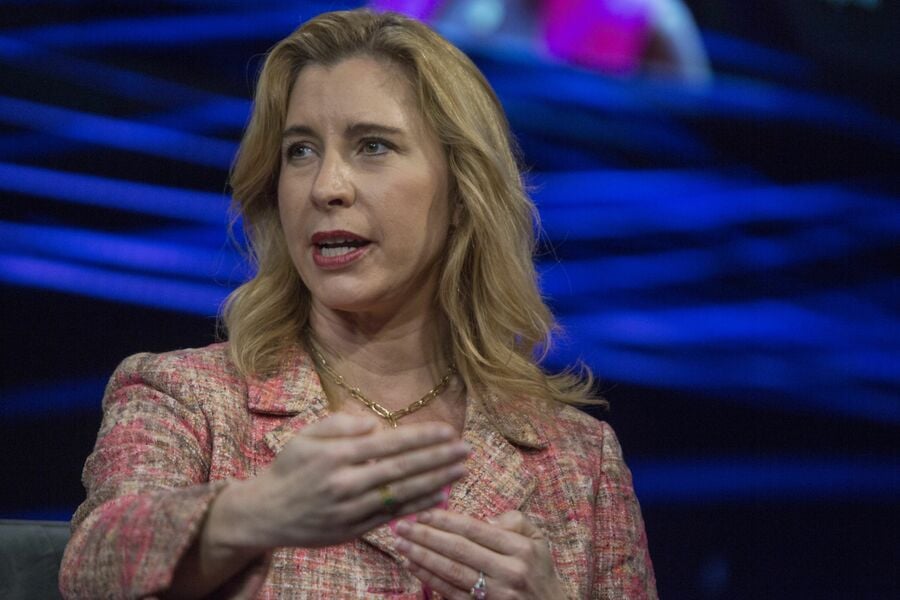

Investors should get out of bonds as rates rise and diversify their portfolios with exposure to commodities such as agricultural products, oil and metals facing supply disruptions due to the war in Ukraine, according to Rebecca Patterson, chief investment strategist for Bridgewater Associates.
“You should absolutely have commodities in your portfolio,” Patterson said during an interview last Friday with David Westin on Bloomberg Television. “We don’t know if bonds as a diversifier are dead or in a coma. I think they’re probably in a coma,” she said on “Wall Street Week.”
Stocks and bonds swung wildly this week as investors sought clues to the economy’s direction, Federal Reserve policy and the impact of the war in Ukraine. The Bloomberg US Aggregate Bond Index is down 7.9% this year through Friday, compared with a 5.8% loss for the S&P 500 Index.
Bridgewater Associates, which oversees $150 billion, posted a 16.3% return in the first quarter as macro funds benefited from volatility in global markets.
Gregory Peters, co-chief investment officer at PGIM Fixed Income, said bonds are getting more attractive as yields rise and provide protection against a potential recession.
“Bonds are increasingly attractive here, not less attractive,” Peters, whose firm had almost $1 trillion under management as of Dec. 31, told Westin. “We’re seeing more alpha opportunities than we have in a long time. So somewhat perversely, we’re pretty excited.”

Carson is expanding one of its relationships in Florida while Lido Advisors adds an $870 million practice in Silicon Valley.

The approval of the pay proposal, which handsomely compensates its CEO and president, bolsters claims that big payouts are a must in the war to retain leadership.

Integrated Partners is adding a husband-wife tandem to its network in Missouri as Kestra onboards a father-son advisor duo from UBS.

Futures indicate stocks will build on Tuesday's rally.

Cost of living still tops concerns about negative impacts on personal finances
RIAs face rising regulatory pressure in 2025. Forward-looking firms are responding with embedded technology, not more paperwork.
As inheritances are set to reshape client portfolios and next-gen heirs demand digital-first experiences, firms are retooling their wealth tech stacks and succession models in real time.
